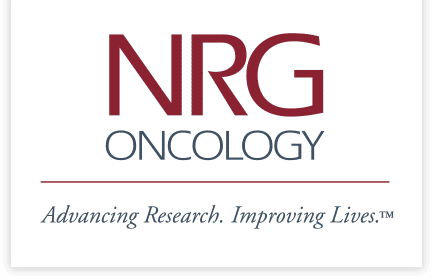Request Demo
Last update 08 May 2025
HER2 positive salivary gland cancer
Last update 08 May 2025
Basic Info
Synonyms HER2 positive salivary gland cancer, HER2ヨウセイダエキセンガン, HER2陽性唾液腺癌 |
Introduction- |
Related
4
Drugs associated with HER2 positive salivary gland cancerTarget |
Mechanism EGFR antagonists [+2] |
Active Org. |
Originator Org. |
Active Indication |
Inactive Indication |
Drug Highest PhaseApproved |
First Approval Ctry. / Loc. United States |
First Approval Date17 Jul 2017 |
Target |
Mechanism HER2 antagonists [+2] |
Active Org. |
Originator Org. |
Active Indication |
Inactive Indication |
Drug Highest PhaseApproved |
First Approval Ctry. / Loc. United States |
First Approval Date22 Feb 2013 |
Target |
Mechanism HER2 antagonists [+1] |
Active Org. |
Originator Org. |
Active Indication |
Inactive Indication |
Drug Highest PhaseApproved |
First Approval Ctry. / Loc. United States |
First Approval Date25 Sep 1998 |
6
Clinical Trials associated with HER2 positive salivary gland cancerNCT05408845
A Phase II Trial of HER2-Targeted Therapies for Recurrent, Metastatic, or Unresectable HER2-Expressing Salivary Gland Cancers
This phase II trial compares the effect of usual treatment of docetaxel chemotherapy plus trastuzumab, to ado-emtansine (T-DM1) in patients with HER2-postive salivary gland cancer that has come back (recurrent), that has spread from where it first started (primary site) to other places in the body, or cannot be removed by surgery (unresectable). This trial is also testing how well trastuzumab deruxtecan works in treating patients with HER2-low recurrent or metastatic salivary gland cancer. Trastuzumab is a form of targeted therapy because it works by attaching itself to specific molecules (receptors) on the surface of cancer cells, known as HER2 receptors. When trastuzumab attaches to HER2 receptors, the signals that tell the cells to grow are blocked and the cancer cell may be marked for destruction by body's immune system. Trastuzumab emtansine contains trastuzumab, linked to a chemotherapy drug called emtansine. Trastuzumab attaches to HER2 positive cancer cells in a targeted way and delivers emtansine to kill them. Trastuzumab deruxtecan is a monoclonal antibody called traztuzumab, linked to a chemotherapy drug called deruxtecan. Trastuzumab is a form of targeted therapy because it attaches to specific molecules (receptors) on the surface of cancer cells, known as HER2 receptors and delivers deruxtecan to kill them. Docetaxel is in a class of medications called taxanes. It stops cancer cells from growing and dividing and may kill them. Trastuzumab emtansine may work better compared to usual treatment of chemotherapy with docetaxel and trastuzumab or trastuzumab deruxtecan in treating patients with recurrent, metastatic or unresectable salivary gland cancer.
Start Date03 Mar 2023 |
Sponsor / Collaborator  NRG Oncology NRG Oncology [+1] |
JPRN-UMIN000046620
HERCEPTIN for intravenous infusion 60 and 150. General drug use-results survey - Advanced or recurrent HER2-positive salivary gland cancer not amenable to curative resection - - HERCEPTIN for intravenous infusion 60 and 150. General drug use-results survey - Advanced or recurrent HER2-positive salivary gland cancer not amenable to curative resection -
Start Date01 Feb 2022 |
Sponsor / Collaborator |
NCT04620187
A Phase II Study of Adjuvant Ado-trastuzumab Emtansine (T-DM1) in HER2-positive Salivary Gland Carcinomas
This research is being done to see how safe and effective the use of the study drug Ado-trastuzumab (T) emtansine (DM1), T-DM1, and standard of care chemoradiation are when used together in treating HER2-positive salivary gland cancer. It will also examine the effectiveness of study drug Ado-trastuzumab (T) emtansine (DM1) on cancer recurrence.
Start Date24 Dec 2020 |
Sponsor / Collaborator |
100 Clinical Results associated with HER2 positive salivary gland cancer
Login to view more data
100 Translational Medicine associated with HER2 positive salivary gland cancer
Login to view more data
0 Patents (Medical) associated with HER2 positive salivary gland cancer
Login to view more data
11
Literatures (Medical) associated with HER2 positive salivary gland cancer06 Apr 2024·Japanese Journal of Clinical Oncology
Trastuzumab deruxtecan in patients with human epidermal growth factor receptor 2–expressing salivary gland carcinoma: a pooled analysis of two phase I studies
Article
Author: Iwata, Hiroji ; Tsurutani, Junji ; Takahashi, Shunji ; Modi, Shanu ; Nakatani, Shunsuke ; Okuda, Yasuyuki ; Sugihara, Masahiro ; Bang, Yung-Jue ; Kinoshita, Ichiro ; Sato, Yuta ; Bando, Hideaki ; Lee, Caleb
01 May 2022·BMJ Case Reports
Role of ado-trastuzumab emtansine (T-DM1) in HER2 positive salivary gland tumour with brain metastasis
Article
Author: Koyyala, Venkata Pradeep Babu ; Chougule, Snehal ; Dhamne, Nilesh ; Pawar, Suraj
01 Feb 2022·Journal of the National Comprehensive Cancer NetworkQ2 · MEDICINE
Metastatic Parotid Gland Carcinoma With ERBB2 Amplification With Complete Response to Fam‐Trastuzumab Deruxtecan
Q2 · MEDICINE
Article
Author: Shukla, Navika D. ; Chiang, Ryan S. ; Colevas, Alexander D.
Analysis
Perform a panoramic analysis of this field.
login
or

AI Agents Built for Biopharma Breakthroughs
Accelerate discovery. Empower decisions. Transform outcomes.
Get started for free today!
Accelerate Strategic R&D decision making with Synapse, PatSnap’s AI-powered Connected Innovation Intelligence Platform Built for Life Sciences Professionals.
Start your data trial now!
Synapse data is also accessible to external entities via APIs or data packages. Empower better decisions with the latest in pharmaceutical intelligence.
Bio
Bio Sequences Search & Analysis
Sign up for free
Chemical
Chemical Structures Search & Analysis
Sign up for free




